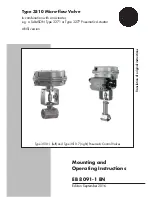
CHAPTER 5: SETTINGS
PRODUCT SETUP
L60 LINE PHASE COMPARISON SYSTEM – INSTRUCTION MANUAL
5-43
5
IP3/Mask3: 10.3.1.2/255.255.255.0 (where LAN3 is 10.3.1.x/255.255.255.0)
Example 2
IP1/Mask1: 10.1.1.2/255.0.0.0 (where LAN1 is 10.x.x.x/255.0.0.0)
IP2/Mask2: 11.1.1.2/255.0.0.0 (where LAN2 is 11.x.x.x/255.0.0.0)
IP3/Mask3: 12.1.1.2/255.0.0.0 (where LAN3 is 12.x.x.x/255.0.0.0)
Example 3 — Incorrect
IP1/Mask1: 10.1.1.2/255.0.0.0
IP2/Mask2: 10.2.1.2/255.0.0.0
IP3/Mask3: 10.3.1.2/255.0.0.0
This example is incorrect because the mask of 255.0.0.0 used for the three IP addresses makes them belong to the same
network of 10.x.x.x.
Single LAN, no redundancy
The topology shown in the following figure allows communications to SCADA, local configuration/monitoring through
EnerVista, and access to the public network shared on the same LAN. No redundancy is provided.
Figure 5-13: Network configuration for single LAN
Multiple LANS, with redundancy
The following topology provides local configuration/monitoring through EnerVista software and access to the public
network shared on LAN1, to which port 1 (P1) is connected. There is no redundancy provided on LAN1. Communications to
SCADA is provided through LAN2. P2 and P3 are connected to LAN2, where P2 is the primary channel and P3 is the
redundant channel. In this configuration, P3 uses the IP and MAC addresses of P2.
















































